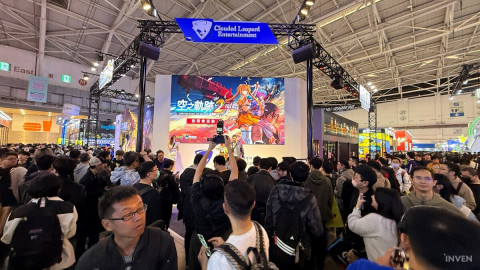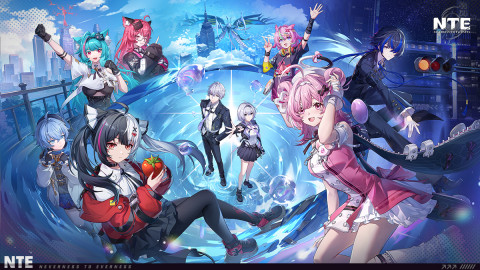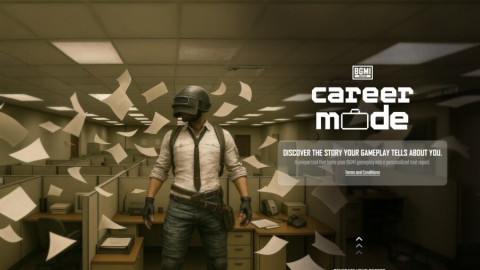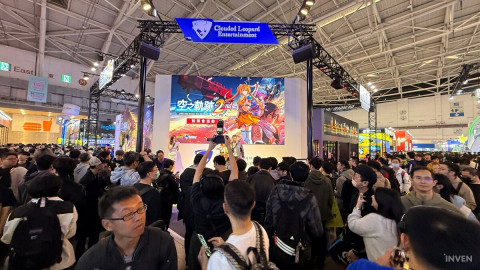
Earlier this year, games industry veteran Jack Felling joined Riot Games as the Head of North American League of Legends Esports and the LCS Commissioner. During that time, many different discussions surrounding the implementation of Champions Queue, LCS players' exclusion from an influencer showmatch, and the long-term viewership of the league occurred. Inven Global spoke with Jackie Felling to discuss these topics.
Thank you so much for the interview! You stated your goal in 2022 was to test new things and make small changes, in order to help fans care about players and teams again. How would you say that went this year?
I think for me — because I'm new to the League of Legends community and in general to Riot (I only started earlier this year) — the first half of the first split really was about learning, listening, and getting to know the players. To try and hear from them what's important — what are things that they face every day at the arena, how they feel from a mental health standpoint, and what can we do to make them feel more like pros and superstars.
I wanted to know how we can better support them overall, and help build them up. I really want our players to be proud of playing in North America, and proud of playing in the LCS. And that's on us to help build a foundation for them to do that. So listening to the community, the players, and the teams, and trying to be very human-oriented is going to be a big part of our focus going forward.
And I hope our fans see that at least we've started to do some stuff in Summer Split, where we've focused more on the player personalities. I went to the players and I said, "I really want you just to be yourself. You don't have to be buttoned up. You don't have to try to be like what we think you should be like. Be yourself, because that is really what fans want. And then that's when you're most comfortable — when you can show them your genuine personality. So it's just been a process overall to help give them that safe, comfortable space where they can really be themselves.
In terms of making them feel like pros and superstars, having a successful and popular league I would argue goes a long way in accomplishing that. In past years I've heard many assurances about how the LCS will grow again, but it still appears LCS viewership is worrying. What are your current thoughts on how the LCS has addressed sustainability and interest?
Esports is so complex, and there's so many different angles and different things that you can do. You actually see out there such a variety — even for me and my career, the different esports I've worked in — how companies approach esports. You see how they approach trying to get more viewership, and how they approach building their communities and all of that.
For me, growing viewership is absolutely a big focus. The way that we do that is by looking at how we can help fans care more about players and teams. People want to be able to cheer for something, and they want to be able to connect with our players and our teams more.
Of course, there's a lot of conversations about performance globally, formats, and all sorts of different things. And what was really interesting to me, was I wanted to come in and I want it to be data-driven to some degree. And part of that also is listening to the community. It's not just looking at hard numbers, but it's looking at all the available information that we have.
And one of the really surprising things for mew was that when you look at different surveys that are out there from different folks in the community and all that we have internally — that sort of performance worldwide and all these concerns that fans have can be compared to other leagues. We were really seeing that when you look at leagues like Formula 1 or MLS — they've done a great job of facing those problems of people carrying, going through a downtime, etc.
Major sports always have dips, and we're really here to stay. This is all about a long-term plan to grow viewership. And so there's a lot of ways that we can grow viewership, and I think we have to start first with listening to the community about what they want to see, really being fan-driven, and being entertaining. And also growing the esport as a whole in North America — grow the competition and skill level long-term. If we can do all of those different things, I think that we can definitely grow viewership and we can build a really successful league.
One aspect to the league's sustainability I would contend is attracting new players and fans of League of Legends in North America. League is a fairly old game at this point, and it seems it would make sense to focus on marketing the game to a younger audience. I was hoping you could elaborate on something, as it's something a lot of fans are curious about.
Jimmy "MrBeast" Donaldson is one of the biggest content creators in the world — especially with young people. So it was surprising to a lot of people that someone like Bjergsen - a flagship personality of the current LCS - was claimed to not be able to compete in his influencer showmatch to a potentially new audience. What steps are the LCS taking to attract younger viewers?
Yeah, so on the MrBeast and Bjergsen thing specifically — of course, the LCS wants as much exposure as possible, and loves to support our players and teams doing as many things as they can out there. In this particular case, there was a global rule about what we could or couldn't allow because of competition happening during the season and all of this.
That is something that we're talking to global about — how can we get more exposure, and how we can enable these kinds of things in the future. So we'll see what happens in the future with rule changes or anything along those lines. But overall, I would say we want to support that kind of thing. We really want to see our players thrive, and see our teams with influencers with these types of events. We're definitely looking at how we can support that in the future.
When it comes to how we attract younger players and viewers — for me, that's a really long-term strategy. It's a long-term plan. We need to look at, first of all, how we can build our events and our broadcast. All those kinds of things — everything that the LCS is. How can we listen to fans? How can we listen to the community about what they want to see? How can we be more entertaining? How can we be more culturally relevant? How can we work with the community?
There are younger people in our communities. There are folks that are up and coming. And I think we need to listen to them, we need to adjust the entertainment value for the league, and we need to look at that overall. That's one aspect of it. But other part is just community building. How can we work with more high schools and colleges, and different parts of the ecosystem in North America.
I really want us to really invest and develop that amateur system, but also the community system. And one of the things I loved when I worked on Gears of War was just the amount of community play that there was. And that's something we're definitely looking at next year, is how we can support that — that grassroots level. How can we support those high schools and colleges more? Because that's really where our future stars are going to be, but also where our future fans are going to be. And we have to think about and listen, most importantly, to what they want. And then build something that they'll love.
Finally, I'd love to ask you about Champions Queue. In the past, you expressed that with your new position you saw Champions Queue as an important development in the league. However, there have been some noted problems with it — some players not using it. What have been your thoughts of its development, as well as its future?
I mean, I'd love to take credit for Champions Queue, but that was already in development before I started, right? It was announced during Spring Split, and the Academy and Amateur team worked really hard on that with the game team — really trying to create this competitive atmosphere in North America. They tried to make a low ping environment for our professional players to practice on.
So when I first came in and I heard about it, I was like, "That is awesome. That is exactly the type of thing that we need to do to grow skill development in North America, and give our players somewhere to practice. Of course, there is player feedback. There are certain things that we need to think about in terms of how to create the best level of competition.
But also, it's sort of like — this is coming out of player meetings, I just met with all the players a couple of weeks ago — the pro players want it to be the highest level possible in Champions Queue. And I think that is a really important aspect of it. The amateur and up-and-coming players obviously want to be included, because they want to strut their stuff. And it's really an opportunity for them to get noticed.
And we've already seen that players that are performing very well and Champions Queue are making it onto Academy teams or LCS teams. And that is definitely working by design — I think that is an amazing thing. So it is hard, quite frankly, to satisfy those two different groups: the up-and-coming players and the professional players. And so that's really our challenge. I don't think we've 100% figured it out yet.
But the team is really passionate. Zack Elliot — he's one of the most passionate people about amateur and community development for League of Legends in North America. And he is so invested in trying to solve this problem. Because if we make an amazing product, people will play in it. If we get it dialed into what's really going to help them, they're gonna play in it. So I don't think we've perfectly solved it yet, but it's a huge part of what I want to continue evolving next year, and where we want to invest.
And I think we will find that right mix and sort of that sweet spot — there's probably some more things that we need to do, and we need to add features to it and all of that. And we need to develop a culture around it. But I feel like we're going to get there, where we can find a really good solution to help with that.
-

I write. I rap. I run. That’s pretty much it.
Sort by:
Comments :0





